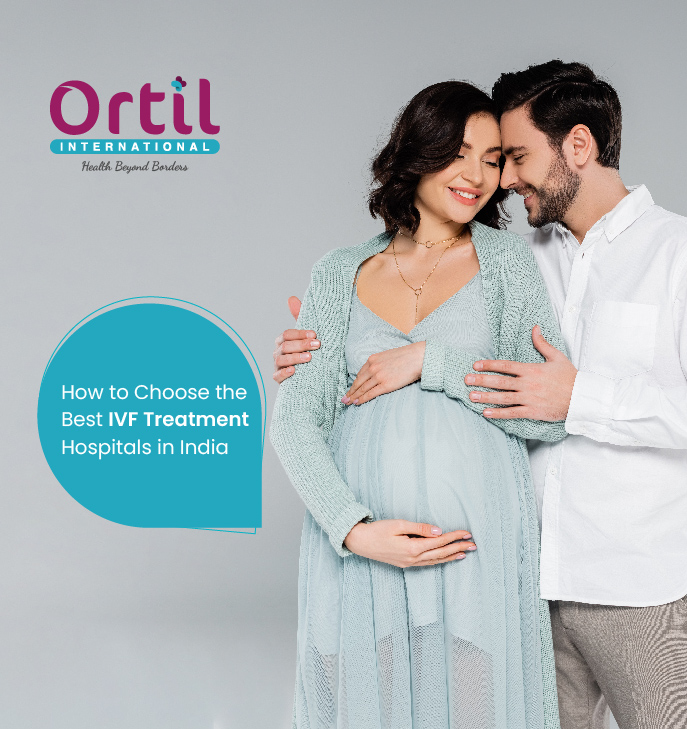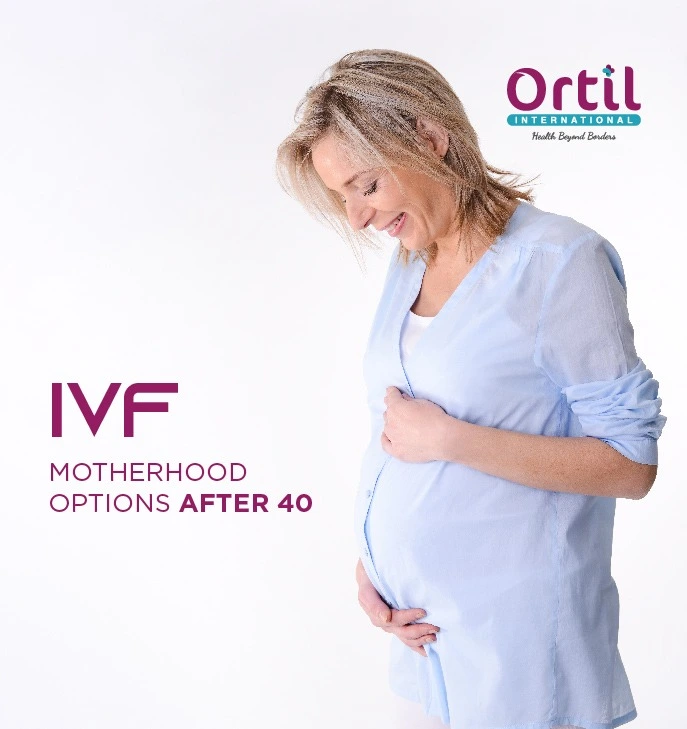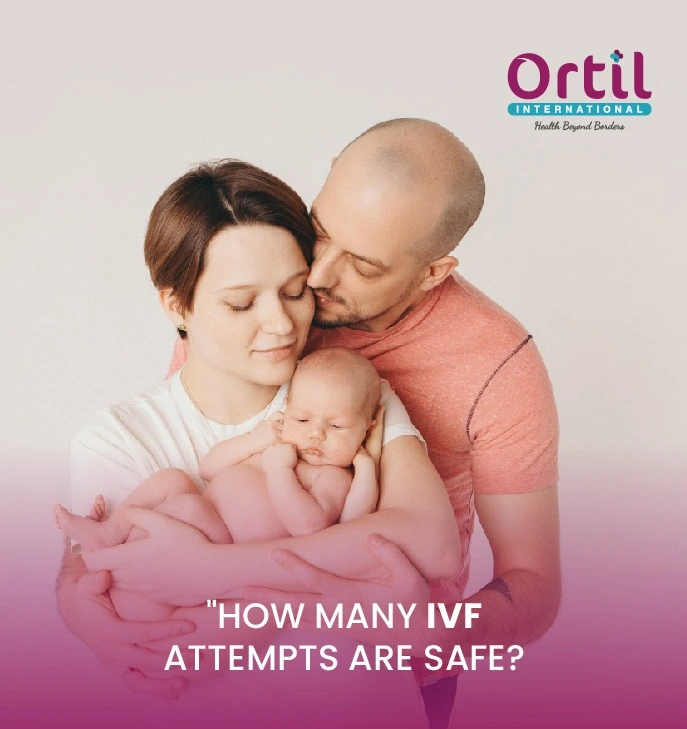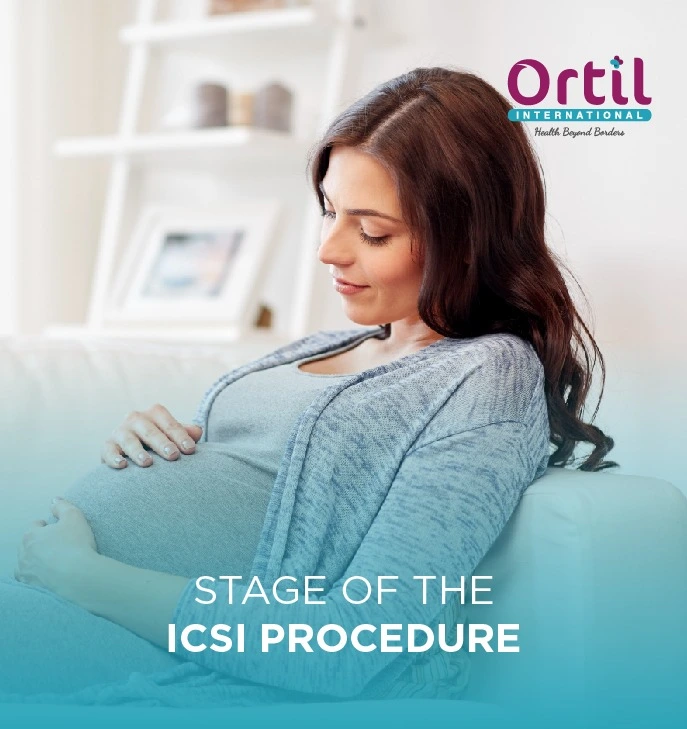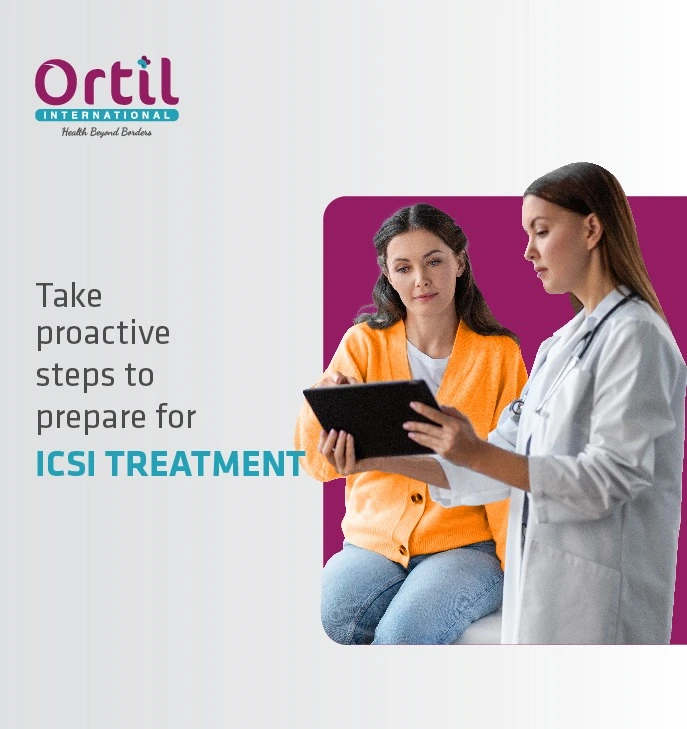How to Choose the Best IVF Treatment Hospitals in India

Overview of IVF Treatment in India
Before selecting an IVF center in India you should know about various factors regarding the treatment. Firstly, prioritize centers with extensive experience and the highest success rate. You should also know about the facilities and services, the IVF center or hospital provides. Lastly, you should try to find recommendations from friends or family or reviews of previous patients who have undergone successful IVF treatments to make an informed choice.
Fortunately, you can find all of this information in the single platform of Ortil Healthcare which is providing top quality treatment approaches with the help of experts and specialists to their patients across the globe.
Factors to Consider when Choosing IVF Hospitals In India
While looking for the best IVF center in India, it is essential to consider multiple factors. Here are key aspects to consider:
The Success Rate of the Center
You should start by examining the historical success rate of the IVF center in delivering positive outcomes through IVF treatments. This information provides valuable information into the effectiveness of the procedures of specific IVF centers.
The Experience of the Staff
Take a closer look at the expertise and experience of the medical professionals involved in the complicated process of IVF. The collective skill of the staff significantly contributes to the overall success of the treatment.
The Location of the Center
Consider the location of the center and evaluate its accessibility. The convenience of the location plays an important role in ensuring a stress-free experience for individuals undergoing IVF treatments.
The Type of IVF Treatment Offered
Familiarize yourself with the range of IVF treatments available at the center. This knowledge allows for an individualized approach that aligns with the needs and preferences of each patient.
The Length of the Waiting List
Ask how long you might have to wait before you can start your IVF treatment. This gives you a clear idea of when you can begin your IVF treatment.
IVF Risks and Complications
Gain some understanding of the potential risks and complications associated with the various IVF procedures offered. This understanding can help you in an informed decision-making process.
Hospital Policies for IVF Treatment
Understanding the hospital's policies for IVF treatment is crucial before starting the process. Here are key aspects to consider:
Treatment Procedures: Understand the step-by-step processes involved in IVF, covering assessments, medications, egg retrieval, fertilization, and embryo transfer.
Cost Structure: Clarify all costs associated with IVF, including consultation fees, medications, laboratory work, and available payment plans or financial assistance.
Success Rates: Inquire about the hospital's success rates with IVF procedures to measure their expertise and the likelihood of a successful outcome.
Legal and Ethical Guidelines: Ensure the hospital adheres to legal and ethical standards, particularly regarding the handling, storage, and disposal of embryos.
Patient Support Services: Check for available counseling or support services to provide emotional support throughout the IVF treatment journey.
Doctor-Patient Communication: Understand how and when communication occurs between doctors and patients, allowing for discussing concerns and receiving updates.
Embryo Disposition Options: Inquire about the hospital's policies regarding extra embryos, considering storage, donation, or other available options.
Legal Documentation: Be aware of any legal documents or consents required for IVF treatment, including agreements related to embryo use and legal implications.
Before you visit or schedule an appointment with an IVF center, it is important to do your research. Explore various sources to gather information about the best IVF centers in India. This research provides awareness of the practices, staff, behavior, and overall experience at the clinics. Be sure to thoroughly check social media platforms and reviews on online media for a comprehensive understanding. While these are the essential factors to consider, it is also very important to have a clear understanding of the policies of IVF centers in India, ethics, and working processes before making any decisions about IVF.
Legal Implications of IVF in India
Fertility clinics are required to adhere to both IVF laws and the Indian Council of Medical Research (ICMR) Guidelines. These may include the following:
Registration of Clinics: A process of registration is necessary when clinics engaged in fertility treatments, including the manipulation and creation of embryos outside the body, must be officially registered by ICMR guidelines.
Code of Practice: The regulations include various codes of practice in which various factors are involved such as staff conduct, facility standards, confidentiality measures, research protocols, and the proper storage of gametes and embryos. It is important to note that the treatments provided by clinics are not only effective but also in strict obedience to established guidelines.
Responsibilities of fertility clinics: The fertility clinics in India have to follow the rules about IVF and the guidelines from ICMR. The responsibilities may include giving helpful information to patients, helping them pick the right fertility treatment, and keeping donor and recipient details secret until the child turns 18. They also involve showing all the costs clearly for treatments.
Egg and sperm donation policy: In India, egg donation and sperm donation are permitted by law. The donors, both eggs and sperm, must remain anonymous and are sourced from registered ART banks. Prenatal sex determination is strictly prohibited in India. India has connections with several agencies providing Caucasian egg donors. These donors are from different countries such as South Africa, Spain, Europe, Georgia, and Ukraine.
Important Questions to Ask When You are Visiting IVF Hospital
What are the Clinic’s Success Rates of IVF Treatment for a Patient?
You should ask this to assess the track record of the clinic in treating individuals with similar fertility issues. It provides valuable information about the chances of a successful outcome.
Does the Fertility Clinic Follow a Patient-Centered Approach?
Inquiring about patient-centeredness ensures that the clinic prioritizes individualized care and always plans a treatment according to the unique needs and preferences of each patient.
Are Providers Board-Bertified?
This question is crucial as it ensures that the healthcare providers meet recognized standards of expertise. It increases the confidence of patients in the medical team.
Is There an Age Limit for Treatment?
Understanding any age limitations helps patients assess their eligibility for treatment and manage expectations based on the policies of the IVF clinic.
What Tests Need to be Done Before Starting IVF Treatment?
Knowing the required tests before IVF is essential for comprehensive pre-treatment evaluation which helps in the development of a personalized treatment plan.
How Long is the IVF Process Expected to Take from Start to Finish?
Inquiring about the expected duration of the IVF process helps patients plan their schedules and manage expectations throughout the treatment journey.
Do you Recommend a Single Embryo Transfer or a Multiple Embryo Transfer?
Understanding the clinic's recommendation on embryo transfer options allows patients to consider factors like success rates, potential risks, and personal preferences.
How Much Does Treatment Cost?
Asking about the cost of treatment is essential for financial planning that enables patients to explore available financial assistance options.
Are There Any Side Effects of Treatments?
Inquiring about potential side effects ensures that patients are well-informed about the possible risks associated with the treatment. It helps with informed consent and the decision-making process.
Conclusion
Ortil Healthcare stands out as a reliable and comprehensive platform for medical tourism. With its user-friendly platform and a commitment to facilitating all-in-one healthcare experiences, Ortil Healthcare demonstrates a dedication to bridging the gap between patients and quality medical services globally. The transparency in presenting medical facilities, treatment options, and associated costs contributes to the confidence of medical tourists. By choosing Ortil Healthcare, individuals can access a valuable resource to overcome the complexities of medical tourism.
FAQ’s of How to Choose Best IVF Hospital in India
What is the Success Rate of IVF Fertility Treatment in India?
The typical success rate for IVF stands at approximately 65% for young women, with higher success rates of 70% observed in those under the age of 35.
How Does IVF Fertility Treatment Function?
IVF involves the retrieval of a woman's eggs, which are then fertilized with the man's sperm in a laboratory. The resulting embryos are subsequently implanted into the uterus to facilitate pregnancy.
When Should I Consult a Fertility Doctor?
It's important to acknowledge the possibility of needing to consult a fertility doctor. Generally, for those under 35, consider seeing a doctor after a year of trying; for those over 35, it's advisable after six months.
How Long Should I Wait Before Seeking Fertility Assistance?
The timeframe for seeking fertility assistance can vary but if you're under 35, it is typically recommended to consult a doctor after a year of unsuccessful attempts. For those over 35, seeking assistance after six months is advisable.










